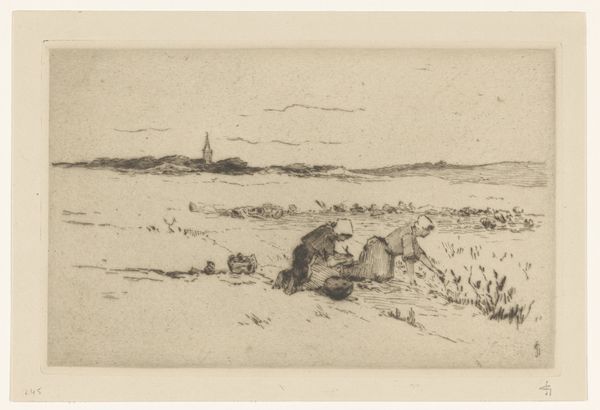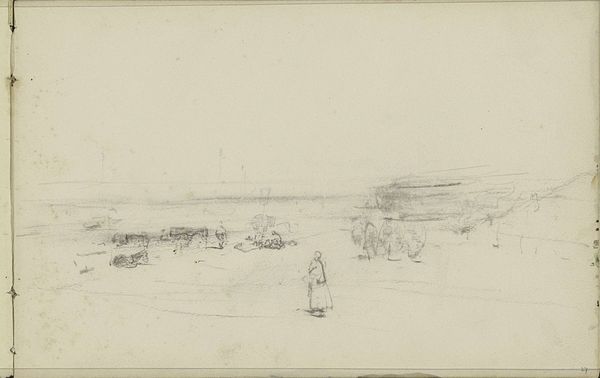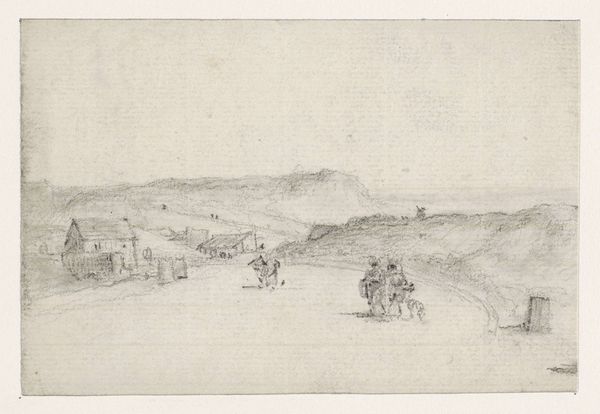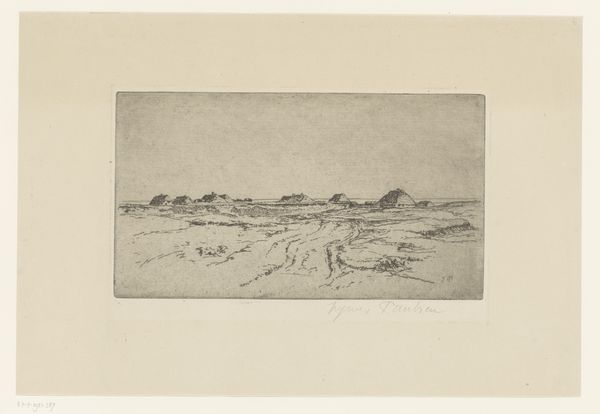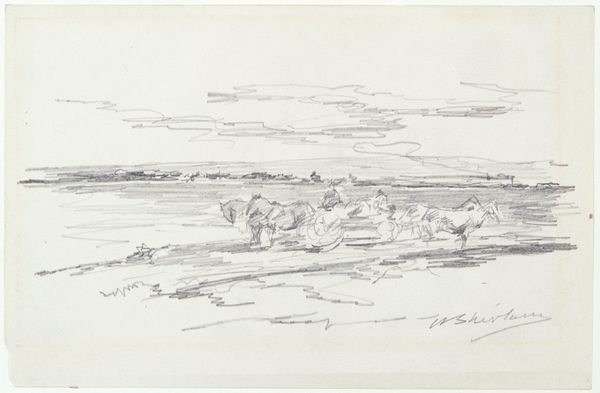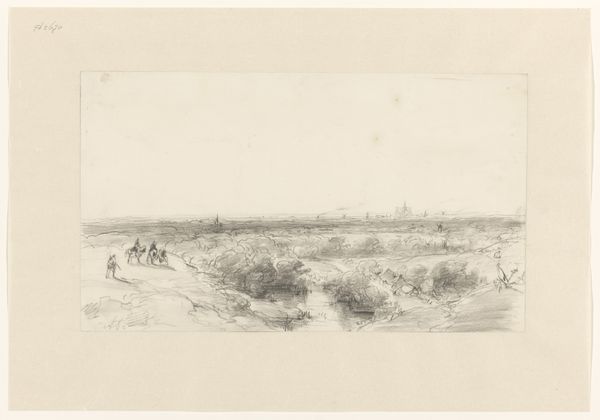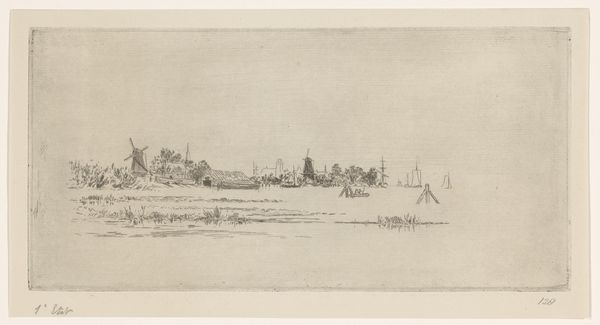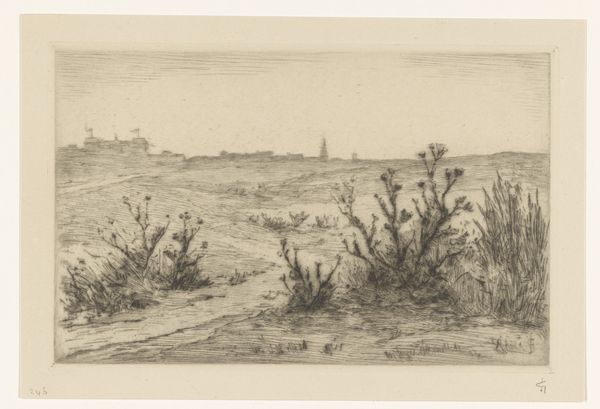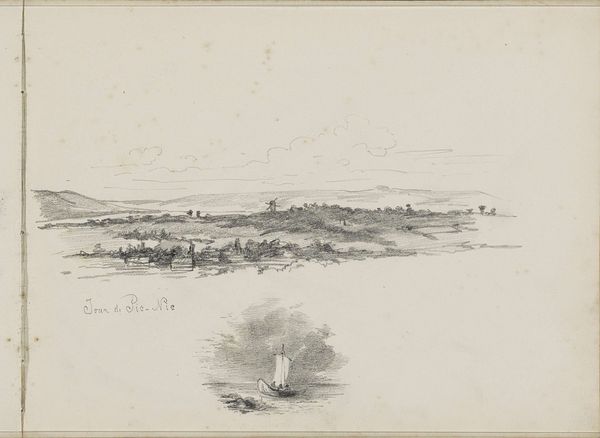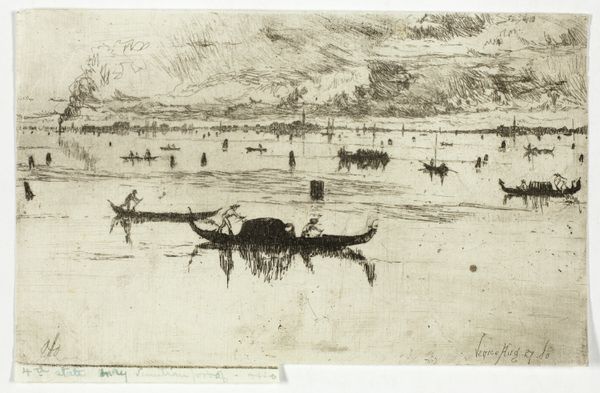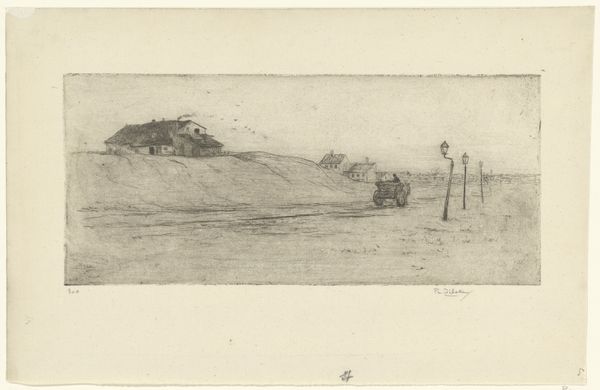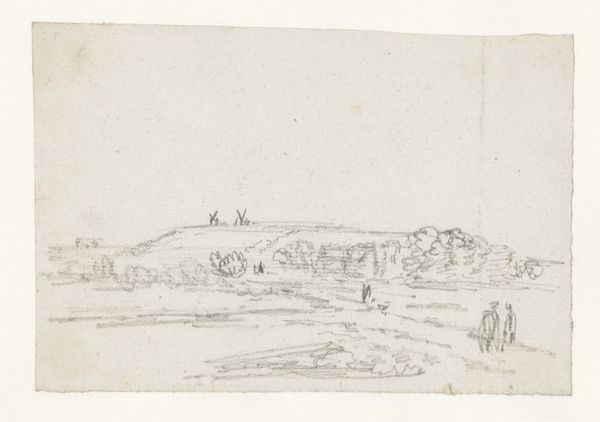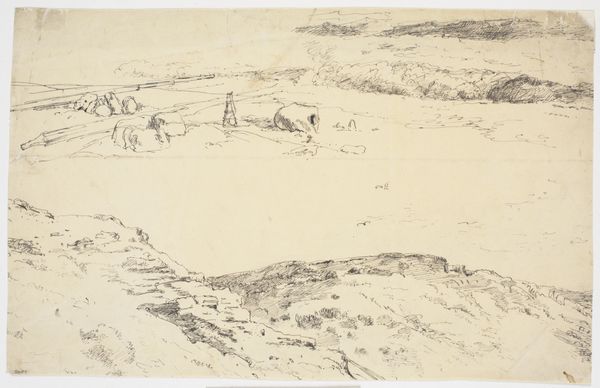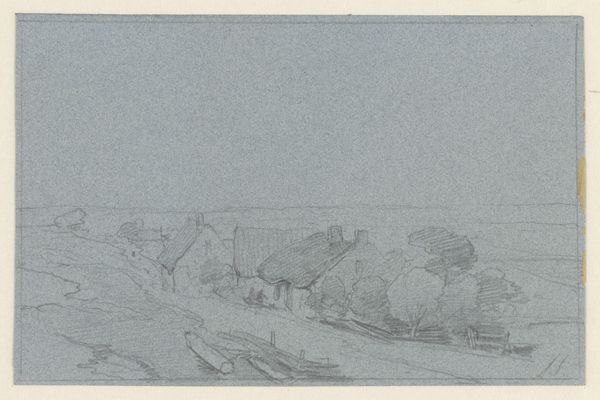
drawing, pencil
#
drawing
#
pencil sketch
#
landscape
#
pencil
#
pencil work
#
realism
Dimensions: height 80 mm, width 120 mm
Copyright: Rijks Museum: Open Domain
Philip Zilcken created this etching, "Weiland met schapen," or "Pasture with Sheep," in the Netherlands at the turn of the 20th century. Its rough, sketchy quality aligns it with the Hague School, a group of Dutch artists who reacted against academic painting by depicting everyday life. The image presents a tranquil scene: sheep graze in a flat, open pasture, and a distant village nestles on the horizon. This romantic vision of rural life coincided with a period of rapid industrialization and urbanization in the Netherlands. Consider how Zilcken's print reflects a nostalgic yearning for a simpler, pre-industrial past. It evokes a sense of national identity rooted in the land and its traditional agricultural practices. To understand Zilcken's work, we can consult historical archives, exhibition catalogs, and period publications. Such resources reveal the social and cultural values shaping both the production and reception of art at that time. By examining the social context, we can better understand how art embodies specific cultural meanings.
Comments
No comments
Be the first to comment and join the conversation on the ultimate creative platform.
